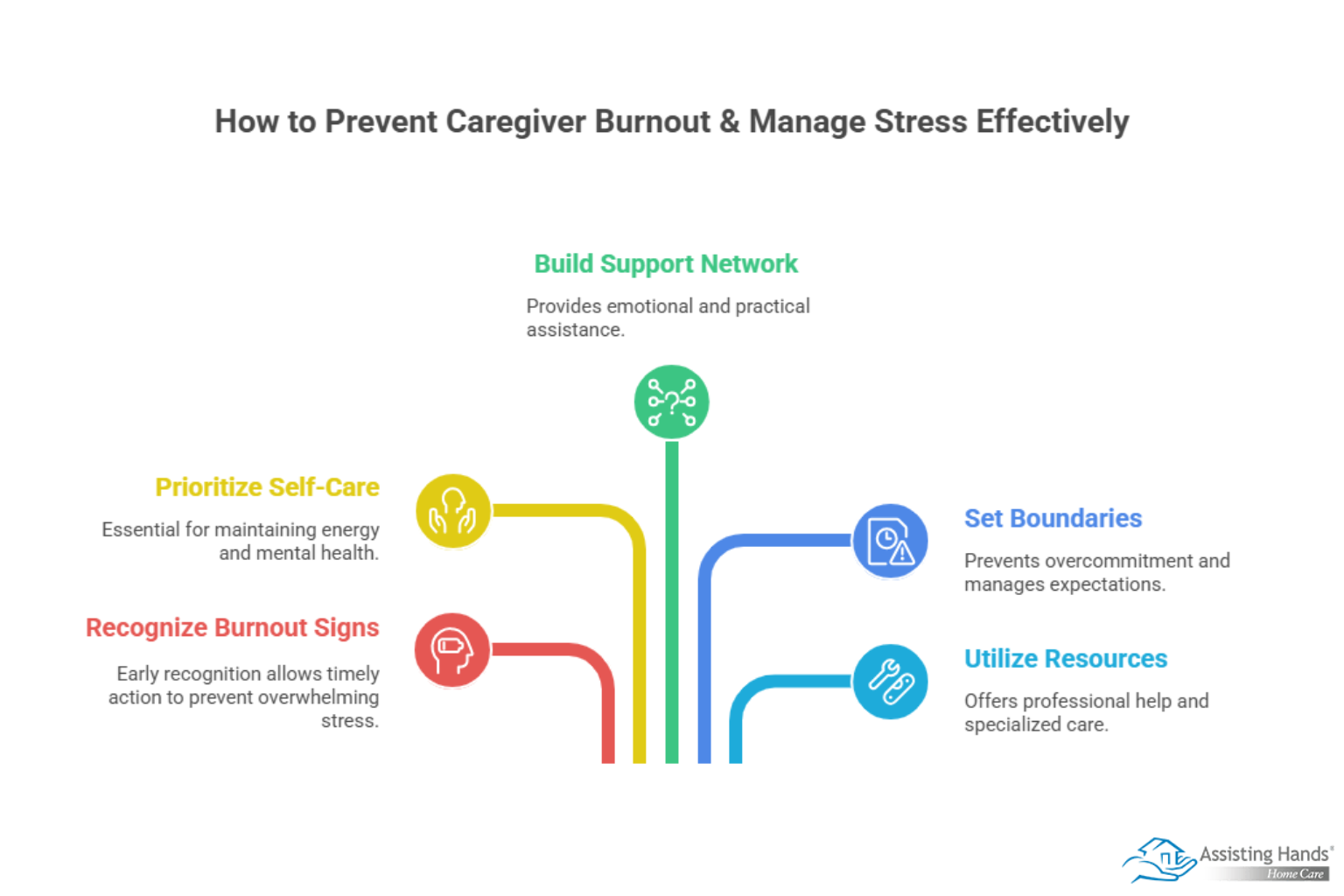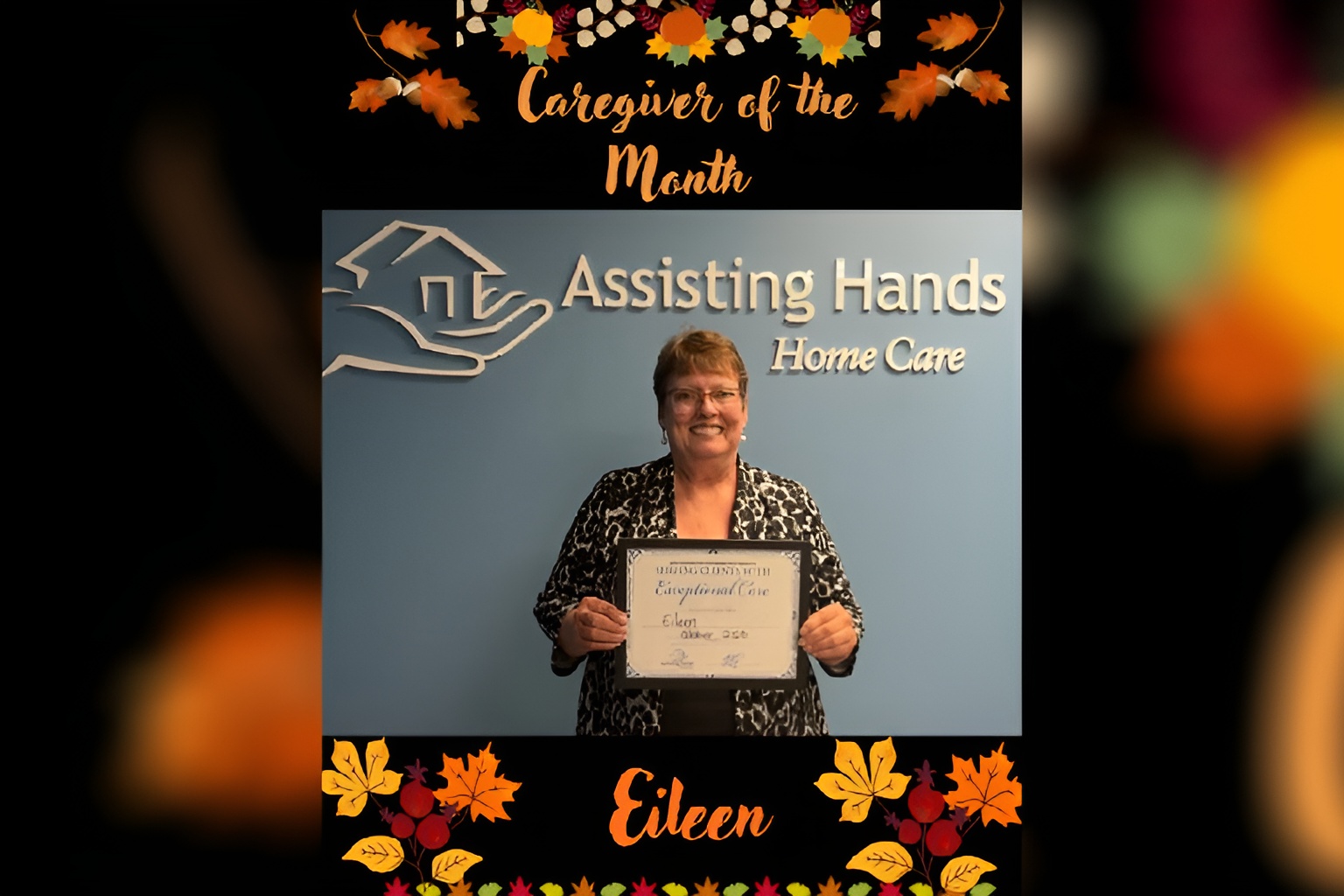
Table of Content
Being a caregiver is one of the most selfless and rewarding roles, but it also comes with its fair share of challenges. The emotional, physical, and mental toll of caregiving responsibilities can lead to burnout if not addressed. Here are practical tips and strategies to help caregivers manage stress and prioritize their wellbeing.
Recognize the Signs of Caregiver Burnout
The first step to preventing burnout is recognizing when it’s happening. Burnout often creeps in gradually and can manifest as physical and emotional exhaustion, irritability, or feelings of helplessness.
Common signs include:
- Constant fatigue or feeling drained even after resting
- Losing interest in activities you previously enjoyed
- Frequent headaches, stomachaches, or other physical issues
- Difficulty concentrating or making decisions
Recognizing these signs early allows you to take action before stress becomes overwhelming.
If you’re feeling overwhelmed by your caregiving responsibilities, you don’t have to manage everything on your own. The type of elder care Libertyville seniors need can vary. Some need assistance a few hours a day, while others require more extensive around-the-clock assistance. At Assisting Hands Home Care, we tailor our care plans based on each senior’s individual care needs, and the plans can be adjusted at any time. We are a trusted provider of respite and 24-hour care, and we also offer specialized Alzheimer’s, dementia, Parkinson’s, and stroke care for seniors.

Prioritize Self-Care
Caregiving often comes with the misconception that you must sacrifice your own needs for the sake of others. However, neglecting self-care can make you less effective as a caregiver. Taking care of yourself isn’t selfish—it’s essential.
Simple ways to practice self-care include:
- Setting aside at least 15 minutes a day for something you enjoy, like reading, meditating, or walking
- Eating nutritious meals regularly instead of skipping them
- Staying physically active with gentle exercises like yoga, stretching, or even a short outdoor walk
- Getting adequate sleep to recharge both your mind and body
By prioritizing even the smallest forms of self-care, you can boost your energy, maintain your mental health, and be present for your loved one.
Build a Support Network
Caregiving doesn’t have to be a solo effort. Building a support network ensures you have people to lean on during challenging times. It can also help you feel less isolated.
Tips for creating a reliable support system:
- Communicate openly with family and friends about what you’re going through and how they can help.
- Join local or online caregiver support groups where you can connect with others in similar situations.
- Don’t hesitate to ask for help with specific tasks, such as grocery shopping, errands, or transportation to appointments.
Having others share the load, even in small ways, can make a world of difference.
Libertyville respite care professionals can assist seniors with a wide array of daily tasks, offering family caregivers the chance to focus on other personal responsibilities or take a break to prevent burnout. Whether it’s for a few hours a day or a few days a week, home care is the perfect solution for family caregivers who are feeling overwhelmed.
Set Boundaries and Manage Expectations
It’s easy to feel obligated to handle every responsibility when caregiving. However, learning to set healthy boundaries is key to preventing burnout.
Here are actionable ways to set boundaries effectively:
- Practice saying “no” when a task or commitment feels overwhelming. Politely declining doesn’t mean you’re failing.
- Use a schedule or planner to allocate manageable chunks of time to caregiving, personal needs, and downtime.
- Understand and accept that you cannot do it all. Identify what tasks are essential and delegate noncritical responsibilities.
By managing expectations for yourself and others, you can create a more balanced routine.
Utilize Professional Resources
There are numerous professional resources designed to support caregivers. Taking advantage of these options eases the burden and provides specialized care without compromising your loved one’s needs.
Examples of professional resources to explore include:
- Respite care services – These allow someone else to step in temporarily so you can take a break.
- Therapists or counselors – Talking to a mental health professional can help you process feelings of stress or guilt.
- Caregiver training programs – Many community organizations offer workshops or courses on caregiving skills to make the role less daunting.
- Home caregivers – Hiring part-time help can free up your schedule and provide peace of mind knowing your loved one is in good hands.
Knowing when to turn to professionals ensures the caregiving process remains sustainable for everyone involved.
Professional caregivers can offer families a huge amount of relief. One of the most challenging tasks of helping an elderly relative age in place safely and comfortably is researching agencies that provide in-home care. Turn to Assisting Hands Home Care for reliable, high-quality in-home care for aging adults. We offer 24-hour care for seniors who require extensive assistance, and we also offer respite care for family caregivers who need a break from their caregiving duties. We will work with you to create a customized home care plan that’s suited for your loved one’s unique needs. Call the Assisting Hands Home Care team today.







